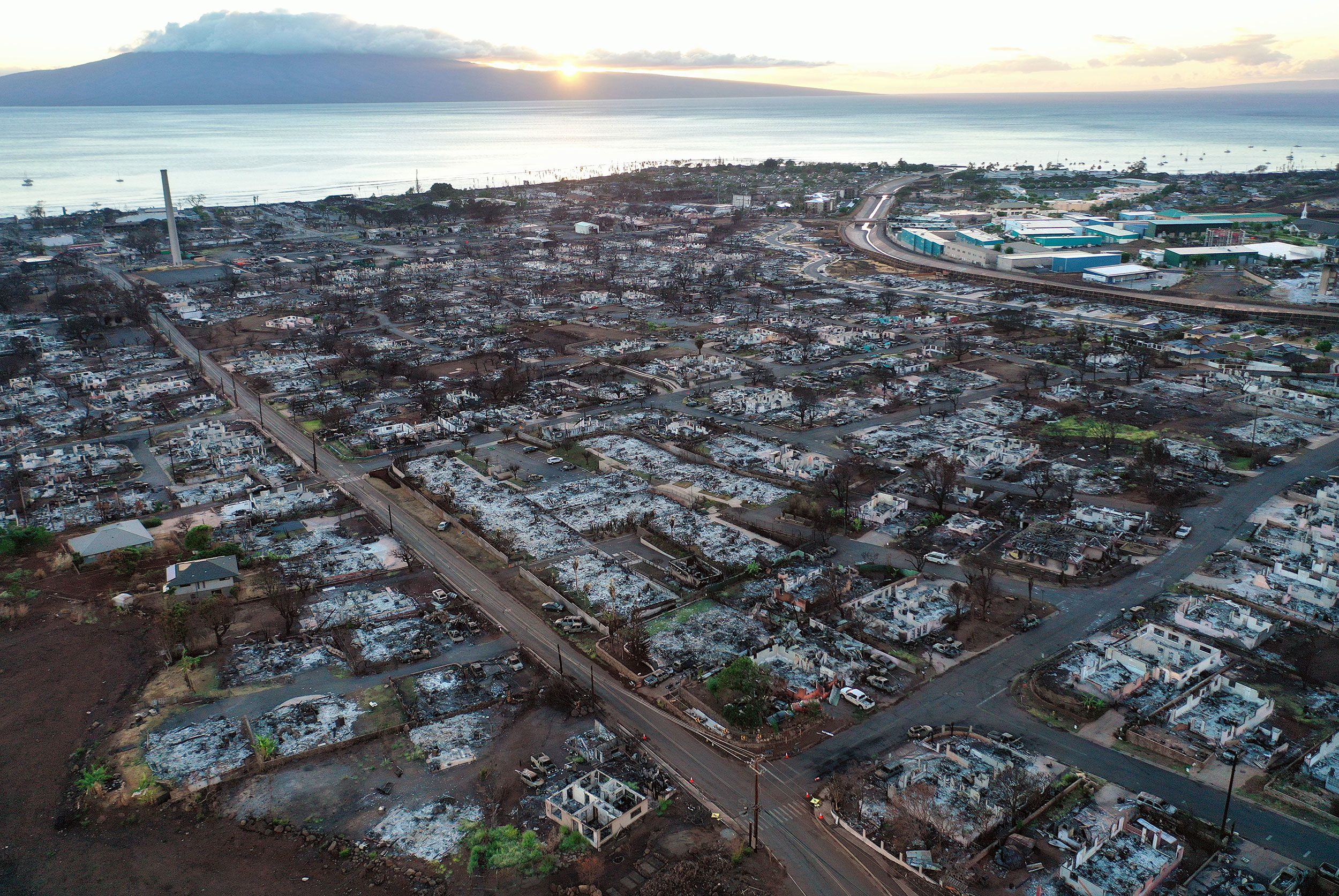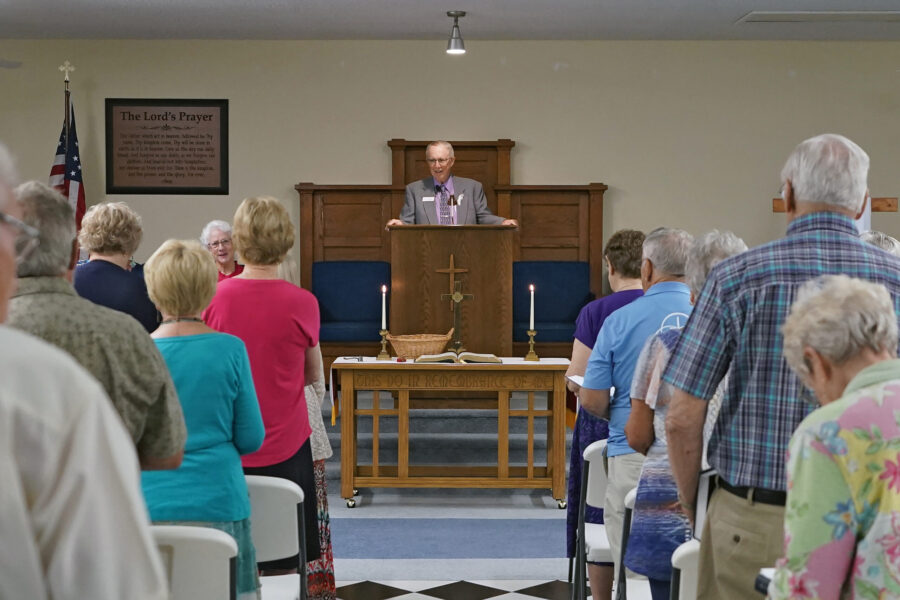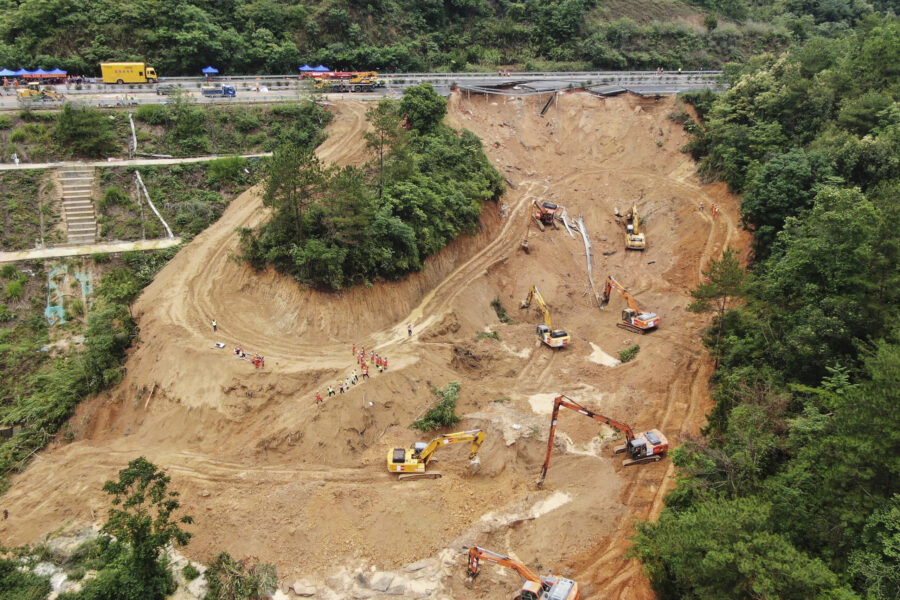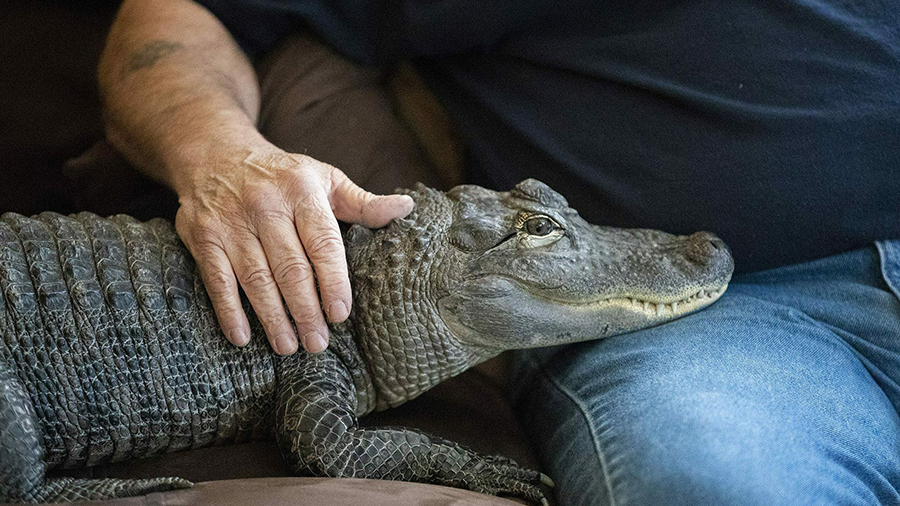100 days after the Maui fires, 4 names remain on the missing list
Nov 18, 2023, 7:41 PM

This photo of Lahaina from Oct. 7 shows the damage that remains two months after the fire swept through the area. (Mario Tama, Getty Images)
(Mario Tama, Getty Images)
(CNN) — One hundred days after the reverberating roar of wildfire moved through West Maui and destroyed centuries of stories in Lahaina, Maui officials confirmed four people are still considered missing from the disaster – an unfinished and plaintive chapter in paradise.
A former NASA engineer, a published author, a father of two, and a beloved mother are still unaccounted for, officials with the Maui Police Department confirmed in interviews with CNN.
Authorities are grappling with the delicate question – whether any of the four people could still be missing 100 days later, or, whether some or all of the unaccounted for were tragically claimed by the fire.
The question is not as easy to answer as it may seem. Maui Police removed a fifth individual from the Lahaina fire missing list as recently as October. A Maui Police spokesperson said investigative efforts found the man safe, refraining from further disclosing where or how he was found.
Law enforcement also described how Hawaii statute presumes a person dead after a continuous period of five years missing.
Searchers are thus operating under the assumption of the four being “missing,” until a living person is found, or human remains are positively identified.
Thursday’s 100-day mark since the inferno coincides with a somber moment for Maui – officials this week increased the death toll of the August 8 disaster to 100 people.
Evidence analysts with the Maui Police Department have worked for weeks to identify a deeply damaged set of human remains. Yet the single set of remains, for now, has eluded positive identification, the department said Wednesday.
Officers tasked with finding missing persons from the inferno, or, the remains of Lahaina’s missing, are still searching the burn zone. Teams planned new checks through the debris as recently as this week.
Yet the burden of uncovering what has happened to Lahaina’s last four missing people weighs heavily on the Maui police officers tasked with finding them.
Two of the officers, who have not previously spoken publicly about their work, described fragments of interrupted lives, as well as a steadiness of purpose to continue their efforts.
“You’re there with the person as they’re sobbing, and you see firsthand the trauma,” said Brad Taylor, the first officer assigned to Maui Police’s unit for Lahaina fire missing persons and notifications to victims’ families.
Taylor’s fellow officer in the unit, Steven Landsiedel, described a deep personal connection to the stories of those still missing, as well as the cases he and his colleagues have closed.
“It does change you, it doesn’t matter how many you do,” Landsiedel said of the investigations completed and notifications to victims’ families.
“Every single one is important.”
The four people still missing
Officials within the 17 local, state and federal agencies responding to the Lahaina wildfire were once confronted with a missing list exceeding 3,000 people during the earliest days of the disaster.
The list, revised October 30, now stands at four:
Lydia Coloma, 70.
Paul Kasprzycki, 76.
Robert Owens, 65.
Elmer Lee Stevens, 73.
Honolulu Civil Beat, a nonprofit newsroom, reported eight of Coloma’s family members died in the wildfire – an astounding toll for an extended Filipino family.
“She is a mother, a wife, a well-respected community member,” Landsiedel said.
Details concerning the three remaining people on the Lahaina fire credible missing list have not been previously reported.
“Robert Owens, he was known to frequent Lahaina,” Landsiedel said. “Through interviews with next-of-kin, we learned that he actually used to work for NASA as an engineer.”
Elmer Lee Stevens was also described by the Maui officers as a common presence in Lahaina. Stevens is a father of two, a man who, they said, finds solace in the quiet pleasures of life.
“Through interviews with family and everything, we found out that he would frequent libraries and find pleasure in reading books or hanging out there,” Landsiedel added.
Paul Kasprzycki was described by the officers as a resident of Lahaina, gifted with a multiplicity of talents. Kasprzycki also has two children who await answers.
“He’s a local artist, a boat builder, a woodworker, and he’s a published author and also a father of two,” Landsiedel said.
Citing privacy concerns and the ongoing investigations, Maui Police declined to describe the last known locations on the day of the wildfire of the four missing people, or the individuals’ last known places of residence. Relatives of the missing reached by CNN did not return requests for comment.
The fifth person recently removed from the list is Artur Babkov, 35. Maui police confirmed to CNN Babkov was found in good health in late October.
Drawing from past experience
Officers Taylor and Landsiedel are two of the four Maui Police officers assigned to the MINT unit, an acronym for the Morgue Identification Notification Task force.
The officers within MINT carry a triple burden: coordinating Lahaina missing persons investigations, tracking identification efforts, and, ultimately, notifying family members of the dead.
In an interview with Taylor and Landsiedel, both conveyed significant training connected to notifying grieving families after fatal vehicle crashes.
“In light of our unique exposure and expertise, we are better equipped to navigate the complexities associated with death and death notifications, far exceeding the typical qualifications of a standard police officer,” Taylor said.
But both men’s backgrounds and friendships played roles in their responses to Maui’s unprecedented crisis.
For Landsiedel, his connection to the deadliest wildfire in California history spurred a greater sense of compassion and responsibility for those affected by the wildfire in Lahaina.
“My hometown is Paradise, California,” Landsiedel began.
“And so, I made it an effort to get into this position, so that I could be beneficial for the department, and be there for the families and friends.”
In November 2018, fierce winds in Northern California toppled electrified utility lines, sparking what would become the deadliest wildfire in modern American history before Lahaina: the Camp Fire.
The inferno consumed 95% of the town of Paradise, leaving 85 people dead.
Landsiedel added, “I had families and friends in Paradise that lost their homes and everything.”
Now, nearly eight years after moving to Maui, Landsiedel described each day investigating Lahaina cases as a small step forward in a process crucial for the mending of Maui families.
“We’re working towards the goal of making sure anybody who has a lost loved one, we’re able to find them or give them closure,” Landsiedel said.
“So, for me personally, I’m grateful to have been chosen for this mission.”
Discovering a friend among the dead
During a missing persons investigation in August, Taylor read a name on a report detailing newly discovered Lahaina human remains. The name belonged to one of Taylor’s former co-workers.
“She used to work with the police department when I started my career. I worked closely with her, and I found about her passing in a DNA confirmation report,” Taylor said.
“I really had to focus on trying to remove my emotions throughout the process. Because if, if I get emotional, then it’s like, how I can I be effective for these people?”
Taylor described how he personally notified the family members of more than 20 Lahaina wildfire victims, just over one in five of the dead. The notifications were face-to-face, with the assistance of the Honolulu Police Department, and chaplains from the Billy Graham Rapid Response Team.
Identifying the last set of remains
Even after 100 days, authorities stressed searches for the missing continued as recently as this week in Lahaina’s burn zone. Taylor and Landsiedel’s message to families of the missing was clear: “We’re not done.”
“Steve and I are still going out into the rubble,” Taylor said. “We’ll find new information out and we want to make sure we find the rest of those people.”
Meanwhile, in a laboratory miles away from the epicenter of the disaster, a single set of damaged human remains is still undergoing extensive DNA analysis. It’s unclear if the remains belong to one of the four on the missing list.
In an interview with CNN, Tony Earles, a crime scene investigator and evidence specialist with Maui Police, said it could take days or months to identify the remains.
“We have ideas of who we think it is, but our profession in forensics is not to go on ideas or hunches, it’s to go on the science,” Earles said.
“There will be extensive DNA (analysis). We may even end up doing a genetic genealogy to make sure we confirm the familial relationship with these severely damaged remains. It is not something that we can take lightly.”
The unthinkable, authorities said, would be for no trace of the Lahaina fire’s final missing people to ever be found. If no remains are recovered, Hawaii state law declares a person “who is absent for a continuous period of five years, during which the individual has not been heard from, and whose absence is not satisfactorily explained after diligent search or inquiry, is presumed to be dead.”
Even so, as West Maui slowly recovers, and a new chapter for Lahaina is written, Earles, Landsiedel, and Taylor expressed hope answers and solace will ultimately be delivered to the families of those who vanished on August 8.
“When I set out to this, it was no stone unturned, no one left behind,” Taylor said. “I am hopeful and committed and dedicated to make sure that I reach that goal.”













